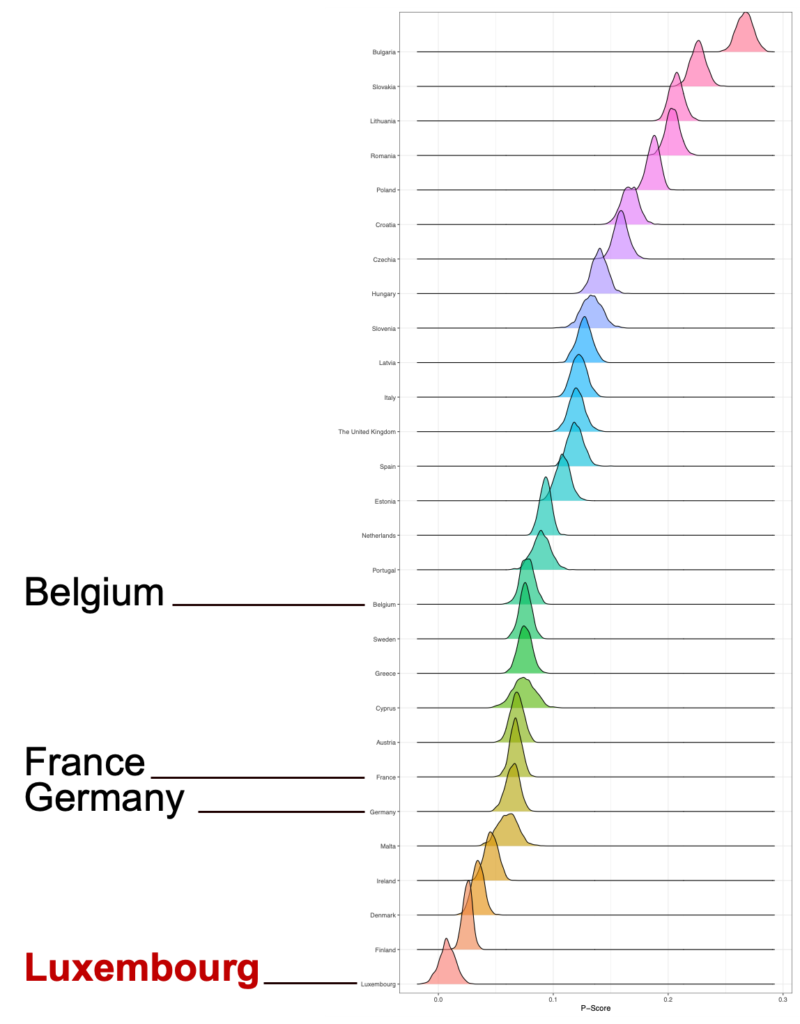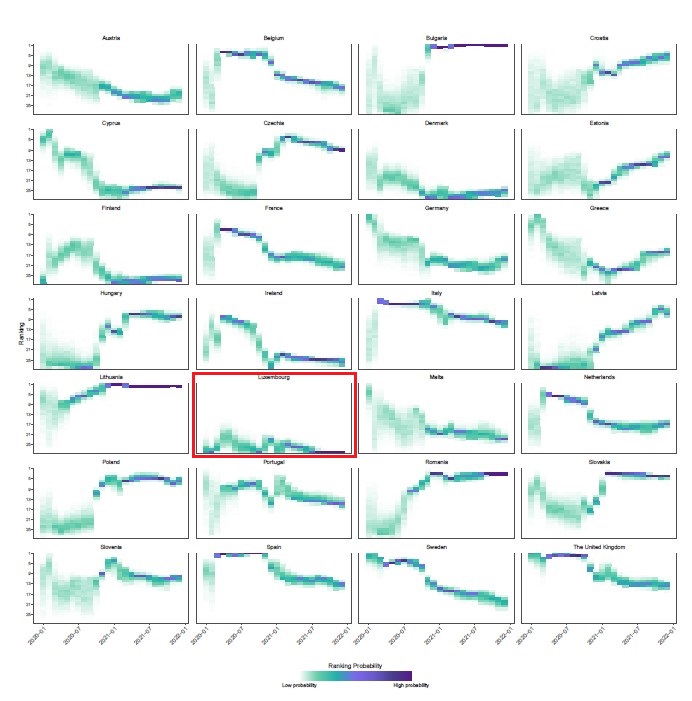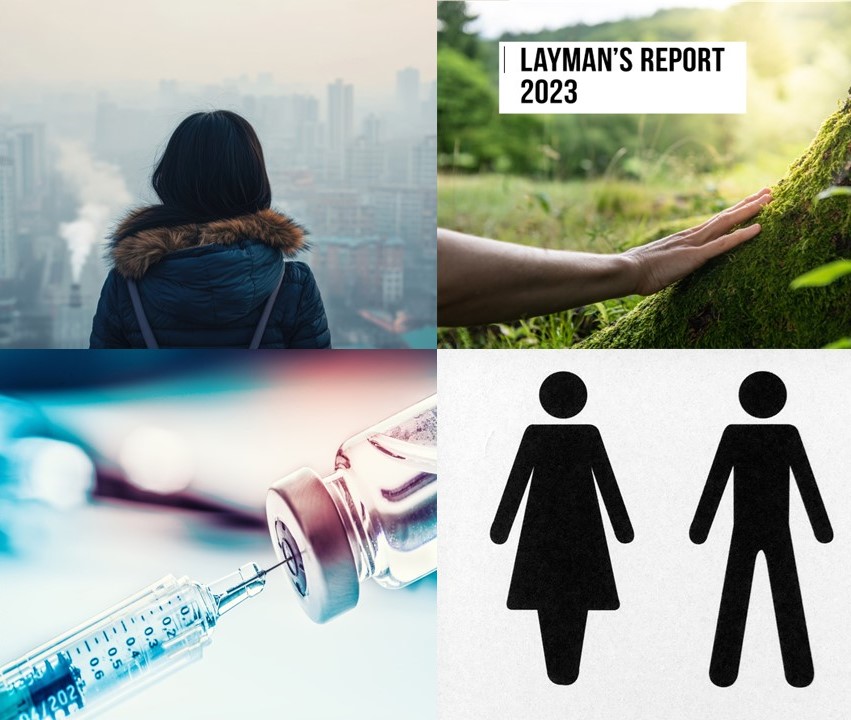WHO study – Luxembourg has lowest excess mortality during COVID-19 pandemic
03 February 2023

Luxembourg’s response to the COVID-19 pandemic
The World Health Organization (WHO) has published a study analysing excess mortality associated with the COVID-19 pandemic. Luxembourg has performed outstandingly in managing the pandemic, thanks to data-driven and evidence-based tailored public health measures.
The COVID-19 pandemic is an ongoing public health crisis that has had a significant impact on mortality rates around the world. The pandemic has caused not only direct deaths from infections with the SARS-CoV-2 virus, but also indirect deaths due to for instance disruptions to healthcare systems. The impact of the pandemic has been felt globally, with distinct countries and communities being affected to different degrees.
In an article recently published in the scientific journal Nature, the World Health Organization (WHO) analysed the excess mortality in various countries for the years 2020 and 2021, which allows a comparative analysis of the toll of this health crisis. The study showed that excess mortality, defined as the number of deaths during the COVID-19 pandemic above the expected number under normal conditions (either directly or indirectly attributed to COVID-19) is lowest in Luxembourg compared to other countries of the European Union or the United Kingdom. A worldwide ranking will only be possible once SARS-CoV-2 becomes endemic in countries where case numbers have not yet stabilised.

The study accounts for differences in the population structure of the different countries by taking into account measures like population size and age-sex structure when calculating the P-score, the ratio of excess to expected death. It shows that Luxembourg has scored best in this most important metric of the study. Furthermore, by comparing countries’ excess mortality rate over time, it becomes clear that Luxembourg was managing the crisis particularly well already early on in the pandemic.

A unique measure: the mass screening strategy
In spring 2020, the Research Luxembourg COVID-19 Task Force was set up to offer the country the combined expertise available within the Luxembourg public research sector (LIH, LISER, LIST, LNS, Luxinnovation, University and FNR, under the coordination of the Ministry of Higher Education and Research). Experts provided data-driven insights into the state of the pandemic through modelling of infection data or detection of SARS-CoV-2 virus in wastewater. This contributed not only to monitoring the pandemic development closely, but also to develop computational prediction models based on which informed decisions could be taken.
To allow rapid and safe restoration of economic and societal activities, Luxembourg implemented an extensive testing strategy including mass screening of its population and systematic screening of contacts. This large-scale testing via PCR (at a time before rapid antigen tests became available) enabled also the identification of infectious non-symptomatic carriers in the population and was linked to a comprehensive contract tracing as well as isolation and quarantine policies. Together, this allowed systematic suppression of epidemic dynamics, leading to comparatively low exposure (seroprevalence of 7.7 % in Luxembourg compared to 15.6 % in Belgium for example) before start of population-scale vaccination (mid-January 2021).
Importantly and in contrast to neighbouring countries (Belgium, France and Germany), the comparatively low exposure in Luxembourg was achieved while most economic and societal activities including cross-border work involving around 200,000 commuters, were sustained after the first lockdown in March/April 2020.
The data from mass screening enabled detailed epidemiological analyses and interventions along with modelling and forecasting projections. These regular assessments allowed targeted refinement of public health measures in direct concert with policy- and decision-makers. In addition, the scientific evidence was frequently communicated through media, press conferences and evidence-informed public debates to the general public.
Long-term impact of COVID-19
The Research Luxembourg community is now engaged in studying the long-term effects of the pandemic.
Here, the CoVaLux project aims to assess the impact of vaccination, the evolution of the immune response, the emergence of new variants, vaccine effectiveness, clinical symptoms in cases of re-infection, post-vaccination infection and Long COVID, as well as identifying both the viral factors and patient characteristics associated with viral resistance to vaccines and reinfections.
Source of the article:
Msemburi, W., Karlinsky, A., Knutson, V. et al. The WHO estimates of excess mortality associated with the COVID-19 pandemic. Nature 613, 130–137 (2023).
https://doi.org/10.1038/s41586-022-05522-2













